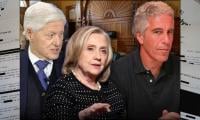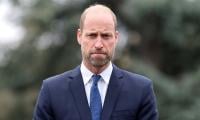Why nazriati politics is difficult?
Ideological politics had vanished in Pakistan in the 1970s and replaced by the politics of cult. In this context, Mian Muhammad Nawaz Sharif is almost 40 years behind ideological politics. Still, one has to wait and see how sincere he is in his 'new ideological doctrine’.
To begin with, it requires a lot of self-explanation and whether his own party has a consensus on his ideological politics. If so, he should rename the party as PML-Nazriati from PML-Nawaz.
We are living in an era of power politics, where even the left-wing parties or groups have changed their ideology to narrow nationalism and ethnic and sectarian politics overshadow national politics. They compromise their basic principles for the sake of status quo politics and thus negate their own ideological politics.
Thus, Nawaz Sharif needs to explain his ideology and when he first decided to become ideological. Mere criticism of superior judiciary and few judges would not make anyone ideological because all these problems are part of the politics of status quo. He does not look very clear in his narrative as his party is still in power and has a two-third majority in the National Assembly despite losing the Senate chairman elections.
Therefore, all is not lost for him and his party which has a new president, Shahbaz Sharif, who is more inclined towards a patch-up with the forces of status quo, while his Prime Minister Shahid Khaqan Abbasi is trying to defuse tension with judiciary.
Even his allies like veteran politician Mehmood Khan Achakzai or Mir Hasil Bizenjo are now nationalists. So is the case with Asfandyar Wali, otherwise they would have revived the National Awami Party instead of forming Pakhtun-based Awami National Party.
Ideological politics needs lot of conviction and commitment and the ideological leaders do not compromise their basic principles. Today, even leaders like Imran Khan, who emerged and become popular because of his 'anti-status quo’ stance compromised before 2013 elections with the politicians of status quo.
Unfortunately, we have always witnessed in our post-1970s politics politicians becoming ideological when they are out of power but assuming the role of politicians of status quo once they get power. Nawaz Sharif and Benazir Bhutto signed Charter of Democracy when both of them suffered at the hands of establishment from 1988 to 1999.
Even Zulfikar Ali Bhutto, after being ousted in July, 1977, badly missed his ideological leaders like JA Rahim and Meraj Mohammad Khan. He once told his party's senior vice-chairman Sheikh Rasheed Ahmad (Baba-e-Socialism) that had he trusted them, he would not have found himself in such a helpless situation.
JA Rahim was an ideological brain behind the PPP's Fundamental Document, but he quit the party when he found Bhutto deviating from its basic principles. Meraj was an ideological fighter who despite being imprisoned by Bhutto, condemned Gen Zia's martial law and protested against Bhutto's imprisonment and later execution.
Nawaz Sharif has to defeat the PML-N's political history to convert the party into an ideological entity. His reference to the country's 70-year history and conspiracies against democracy were based on historical facts, but he once again needs to admit and apologise for his past role, although he and Benazir Bhutto had once admitted these mistakes when they had signed the Charter of Democracy.
It was Pakistan's misfortune that after Quaid's death, the country also lost its democratic and ideological direction. The majority rule was not recognised and the first martial law was imposed within 10 years.
Ideological politics was at its peak in the 1950s and 1960s. It suffered a serious blow when the left-wing politics was banned through so-called the Rawalpindi Conspiracy case, the ban imposed on the Communist Party of Pakistan and imprisonment of left-wing politicians.
Ayub's martial law was perhaps the last nail in the coffin of Pakistan's democratic direction. Ideological leaders like Hasan Nasir became the most prominent martyr of ideological politics when he was tortured to death in the famous Shahi Qilla which practically became the 'graveyard' for many ideological workers till the end of the 11-year rule of Zia, before it was opened for public in 1990s by the democratic government.
Later, Ayub also tried to get rid of Jamaat-e-Islami, when its founder Maulana Maudoodi was sentenced to death and even Sheikh Mujibur Rahman was convicted.
When Ayub defeated Fatima Jinnah in a controlled-democratic order and crushed ideological politics, the then young Zulfikar Ali Bhutto emerged as a new ideological leader. He was a non-entity when picked in Ayub's cabinet at a very young age. But when he revolted against Ayub in 1967 and laid the foundation of a new ideological party, he attracted many progressive and leftist leaders who joined him after being disappointed by the National Awami Party.
The PPP became a reality because of ideological brains like JA Rahim, party's first secretary-general who gave the concept of 'socialism is our economy' and “roti, kapra aur makan”. Within three years, the PPP became a ray of hope for ideological workers, but when Bhutto got power after the 1971 crisis, he somehow lost the party's ideological narrative.
From Bhutto to Benazir and from Benazir to Asif Ali Zardari, the PPP remained in Pakistan's mainstream politics, but lost its ideological direction despite being the only party in our history, whose leaders and workers gave sacrifices alike. They faced executions, prison, torture, flogging and unprecedented loss of leaders like Bhutto and Benazir.
Nawaz Sharif's political birth was an outcome of Zia's anti-PPP political narrative and former ISI chiefs like Gen Hamid Gul used him for years for their political gains and to defame Benazir. The then establishment also corrupted politics and its role in corrupting the system would be mentioned whenever the history of corruption is written by an independent writer.
It is true that in democracy, government and rulers can be removed through elections, but it is also true that in real democracies rulers step down when they are accused of corruption or any wrongdoings even before they faced trial.
Thus, Nawaz Sharif needs to satisfy as why an independent Supreme Court convicted him and went against him. One can have different opinion over the Panama Papers case or the verdict, but an ideological Nawaz Sharif needs to accept this verdict and learn from the past mistakes.
Clean politics is essential for ideological politics no matter it is of the right wing or the left. So Nawaz Sharif can make his party ideological by sacrificing his own political career and to make PML-Nawaz as PML-Nazriati.
This is an era of politics of status quo where even the leaders like Imran Khan or Sirajul Haq are left with no other option but to accept the status quo to survive in politics. Thus, Nawaz Sharif may find it difficult to enforce his ideology in a non-ideological era.
Both PPP and PML-N leaders must admit that the NRO or the 2000 deal with dictators are a negation of ideological politics.
The writer is a senior analyst and columnist of GEO, The News and Jang
Twitter: @MazharAbbasGEO
-
 Jennifer Garner Drops Parenting Truth Bomb On Teens With Kylie Kelce: 'They're Amazing'
Jennifer Garner Drops Parenting Truth Bomb On Teens With Kylie Kelce: 'They're Amazing' -
 AI Is Creating More Security Problems Than It Solves, Report Warns
AI Is Creating More Security Problems Than It Solves, Report Warns -
 'Game Of Thrones' Prequel 'A Knight Of The Seven Kingdoms' New Ratings Mark Huge Milestone
'Game Of Thrones' Prequel 'A Knight Of The Seven Kingdoms' New Ratings Mark Huge Milestone -
 Apple Seeks To Dismiss Fraud Suit Over Siri AI, Epic Injunction
Apple Seeks To Dismiss Fraud Suit Over Siri AI, Epic Injunction -
 Delroy Lindo Explains The Crucial Role Of Musical Arts In Setting Up His Career Trajectory
Delroy Lindo Explains The Crucial Role Of Musical Arts In Setting Up His Career Trajectory -
 Timothée Chalamet Reveals How He Manages To Choose The Best Roles For Himself
Timothée Chalamet Reveals How He Manages To Choose The Best Roles For Himself -
 Princesses Beatrice, Eugenie’s Conflict Gets Exposed As Mom Fergie Takes Over The Media
Princesses Beatrice, Eugenie’s Conflict Gets Exposed As Mom Fergie Takes Over The Media -
 Kate Middleton Plays Rock-paper-scissors In The Rain
Kate Middleton Plays Rock-paper-scissors In The Rain -
 Lindsay Lohan On 'confusing' Teen Fame After 'Mean Girls': 'I Should Have Listened To My Mom And Dad'
Lindsay Lohan On 'confusing' Teen Fame After 'Mean Girls': 'I Should Have Listened To My Mom And Dad' -
 Savannah Guthrie Mom Update: 'Today' Show Sees Huge Ratings Boost Amid Search For Nancy Intensifies
Savannah Guthrie Mom Update: 'Today' Show Sees Huge Ratings Boost Amid Search For Nancy Intensifies -
 Hillary Clinton To Testify In Epstein Probe Alongside Bill Clinton
Hillary Clinton To Testify In Epstein Probe Alongside Bill Clinton -
 Meghan Markle, Prince Harry End Jordan Trip With Meaningful Hospital Visit
Meghan Markle, Prince Harry End Jordan Trip With Meaningful Hospital Visit -
 AI Boyfriends Gain Popularity In China As Young Women Turn To Virtual Romance
AI Boyfriends Gain Popularity In China As Young Women Turn To Virtual Romance -
 Prince William Receives Reality Check As His Media Strategy Fails
Prince William Receives Reality Check As His Media Strategy Fails -
 Zach Braff Reflects On Doing Odd Jobs Ahead Of Major Career Breakthrough In 2001's 'Scrubs'
Zach Braff Reflects On Doing Odd Jobs Ahead Of Major Career Breakthrough In 2001's 'Scrubs' -
 Google Rolls Out Nano Banana 2 With 4K AI Image Generation
Google Rolls Out Nano Banana 2 With 4K AI Image Generation



